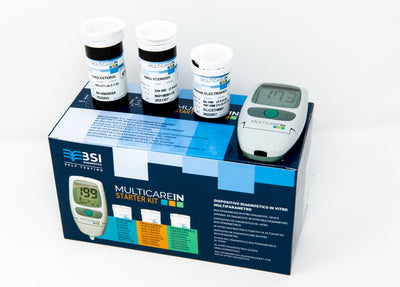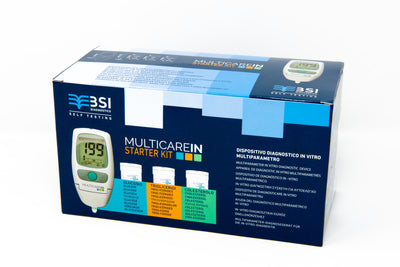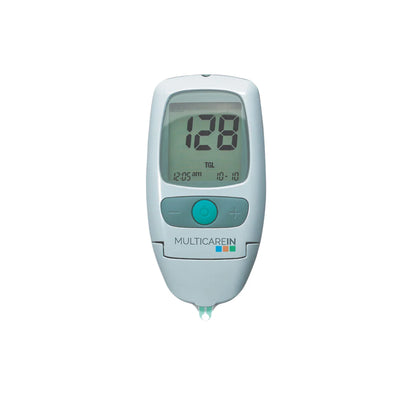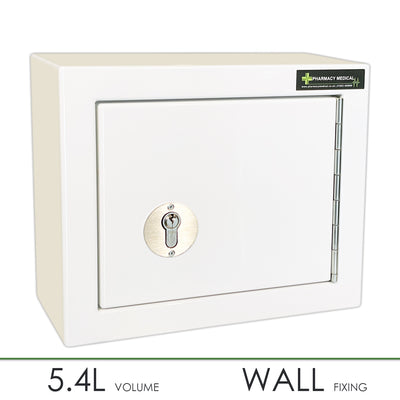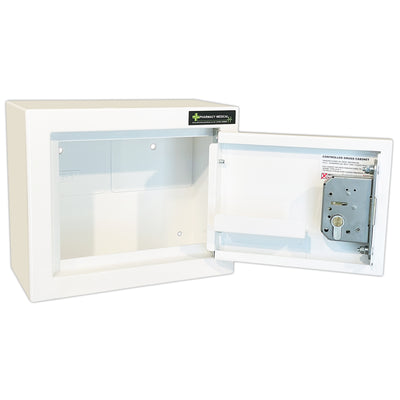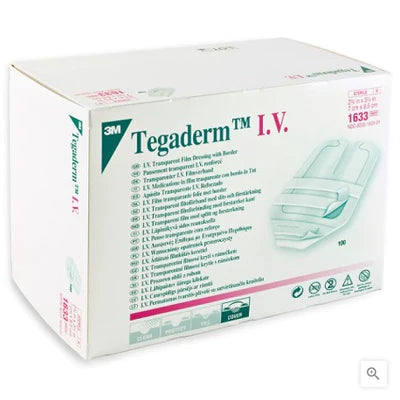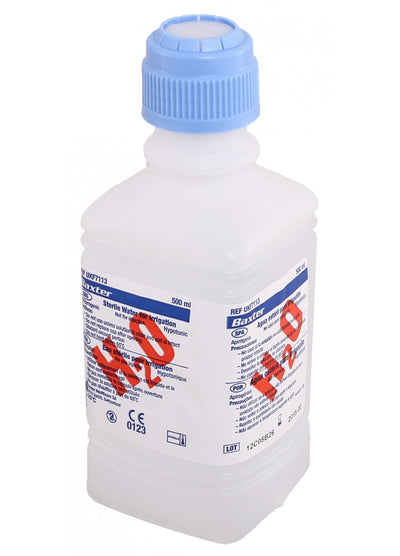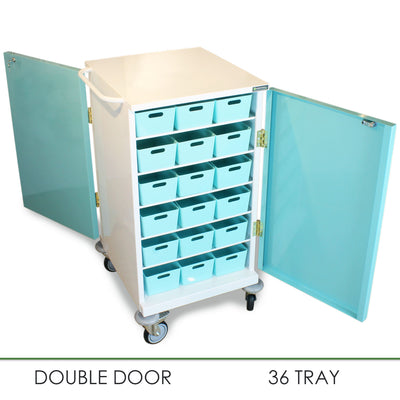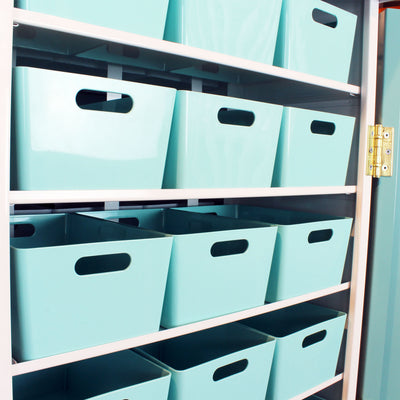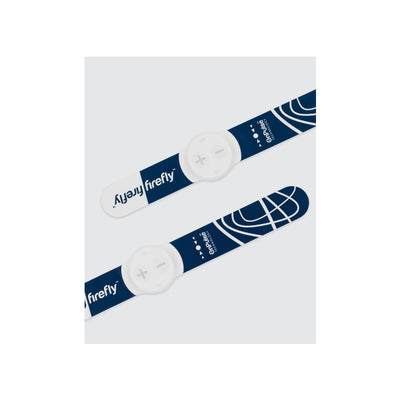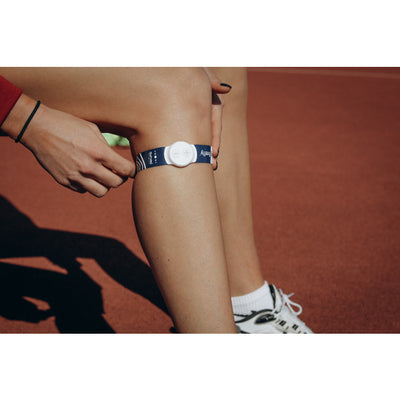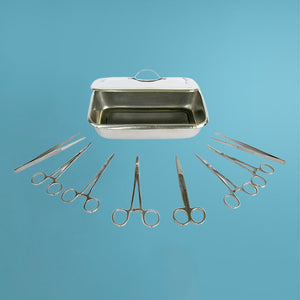Blogs
Enhance independence with smartly designed daily living aids. Small solutions offering big impact on everyday life.

5 Ways to Remember To Take Your Daily Medication
18.12.2023
Your GP has prescribed you a number of different medications for your ailments, conditions and wellbeing, but they have to be taken at different times on different days and you’re beginning to get confused. Sound familiar?
Unfortunately as we age or if we’re suffering from a number of health conditions, we’re likely to be more and more reliant on medication to manage those conditions and it can become incredibly difficult to make sure we’re taking the right tablet at the right time and in the correct way to ensure the most effective use of the drug.
Missing vital medicines can be hugely detrimental to your health and should be avoided at all costs.
So here are our 5 top tips for managing your medication everyday.
Organise your medication
Using something like a 7 day pill box is a really great way to keep track of all of the tablets you need to take in the week. The pill dispenser will come with 7 days worth of small compartment boxes (usually 4 - one each for morning, noon, evening and night). If you take different doses of medication in the morning and night, you can designate a box for each time.
Some medication boxes or pill dispensers will even come with a small chart for you to fill in with all the details of your medication schedule, to keep you on track each week as you refill the box.
Use Alarms
Another good way to keep yourself on track with your daily medication times is to set regular alarms on your phone, your digital alarm watch or a good, old-fashioned alarm clock in the house. You might be able to set the alarm to a silent or vibrate mode so you can be discreet while out and about, while avoiding missing essential medication.
Written Reminders
Stick them on the fridge door, the kettle, in the car or on your shoes! Whatever works for you. If you struggle to remember to take your tablets, you might need lots of visual cues to remind you.
Hang a calendar in a room you regularly spend time in and make sure you write on it when you need to take your pills and mark off when you’ve taken them. For some of us, visual reminders work better than other forms of sparking the memory.
Create Habits
Many of us have busy lives, making it hard for us to remember to take medicine at the required times throughout the day. So, consider taking your medicine at the same time as you might regularly do other scheduled daily tasks. For example, you might take your morning pills at the same time as you check the news on your phone each morning or just after you brush your teeth.
Associating brushing your teeth or taking the dog for its evening walk with having your medication will start to create a habit. Once you’ve solidified that habit and association, you’ll be closer to remembering to take your much needed medication each day.
Go Digital
A digital pill reminder box is a very useful tool if you struggle to remember to take your medicine on time, especially when you’re out and about. It’s small enough to carry around and, as well as having the separate boxes for your daily medication, it has a handy digital alarm clock that you can set to the correct time for your medication.
Need more help with organising your medication? We're always here to help so get in touch today.
For all your Medical and Homecare supplies give us a call at Mediworld.
We have over 40 years experience in medical, surgical, mobility and home health supplies and we're always on hand to chat if you need support or advice. Follow us on Twitter and Facebook and don't forget to read our other great health blogs!
October 2022
Learn More Now
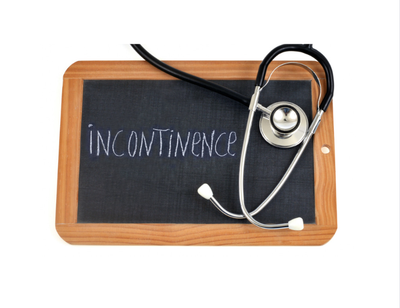
Dealing with Incontinence
26.09.2023
Incontinence can affect people of all ages and can have a huge impact on their daily lives. Often sufferers will be reluctant to talk about their bladder or bowel problems, which can make the struggles even greater.
Thankfully, in most cases the problem can be cured or managed so that it doesn’t interfere with your everyday life.
Causes of Incontinence
While there are many reasons why someone might develop incontinence of the the bladder or bowels, often it is caused by one of the following:
Weak pelvic floor or bowel muscles (perhaps from pregnancy or lack of mobility)
Changes in the nerves or signals controlling the bladder, pelvic floor or bowels (due to surgery or other neurological/systemic conditions including stroke or dementia).
Enlarged prostate in men.
Continued diarrhoea.
Treatment for Incontinence
If you’ve been diagnosed by a GP with a form of incontinence you might be offered prescription medicines or be referred to a physiotherapist for a programme of exercises to strengthen the muscles surrounding the bladder (pelvic floor exercises) or bowel.
It will also be recommended to you to adopt a number of lifestyle changes to support and ‘train’ your body in dealing with managing food and liquid intake and using the toilet successfully with fewer incontinence incidents.
Lifestyle changes could include:
Reducing caffeine and alcohol intake. Both of these drinks have a strong diuretic effect causing the individual to need more frequent and pressing trips to the toilet.
Reducing fibre intake, to lessen the number of looser stool movements, allowing an element of greater control over toilet trips.
Scheduling toilet breaks. You might be advised to set an alarm to remind yourself to regularly take a toilet break, no matter what you’re doing. Routinely taking trips to the toilet may help to reduce the risk of accidents and to ‘train’ the bladder or bowel to go for slightly longer between trips.
Surgery is often only considered as an option if all other treatments haven’t worked.
Dealing with accidents
If you do have an accident, then you should deal with it promptly and discreetly. It’s a good idea to have a change of clothing or bedsheets always at the ready - either in the house or in your car or bag if you're out and about. Being stuck with wet or soiled clothing and sheets will be incredibly uncomfortable for you.
Stock up on sanitary and incontinence pads. These are incredibly useful for people who struggle with bladder control, and allows them to go about their day relatively secure in the knowledge that they may have some leaks but remain dry on the outside. Again, having a good supply to hand at home or in the car or your bag is a good idea.
At home it would be a good idea to fit a waterproof bedsheet and even a waterproof pillowcase to protect beds from overnight leaks and accidents.
Seeking Help for Incontinence
If you find that you are not coping with the incontinence then you should seek advice from your doctor, and ask about any incontinence support groups in your area, or a network of carers that can offer help and support.
When treated early, incontinence is not a serious issue, and it does not need to limit a person’s quality of life. Many people with incontinence manage to keep it under control and even continue to play sport and live a busy and active life.
Need more support? We're always here to help.
For all your Medical and Homecare supplies give us a call at Mediworld.
We have over 40 years experience in medical, surgical and home health supplies and we're always on hand to chat if you need support or advice. Follow us on Twitter and Facebook.
April 2023
Learn More Now
